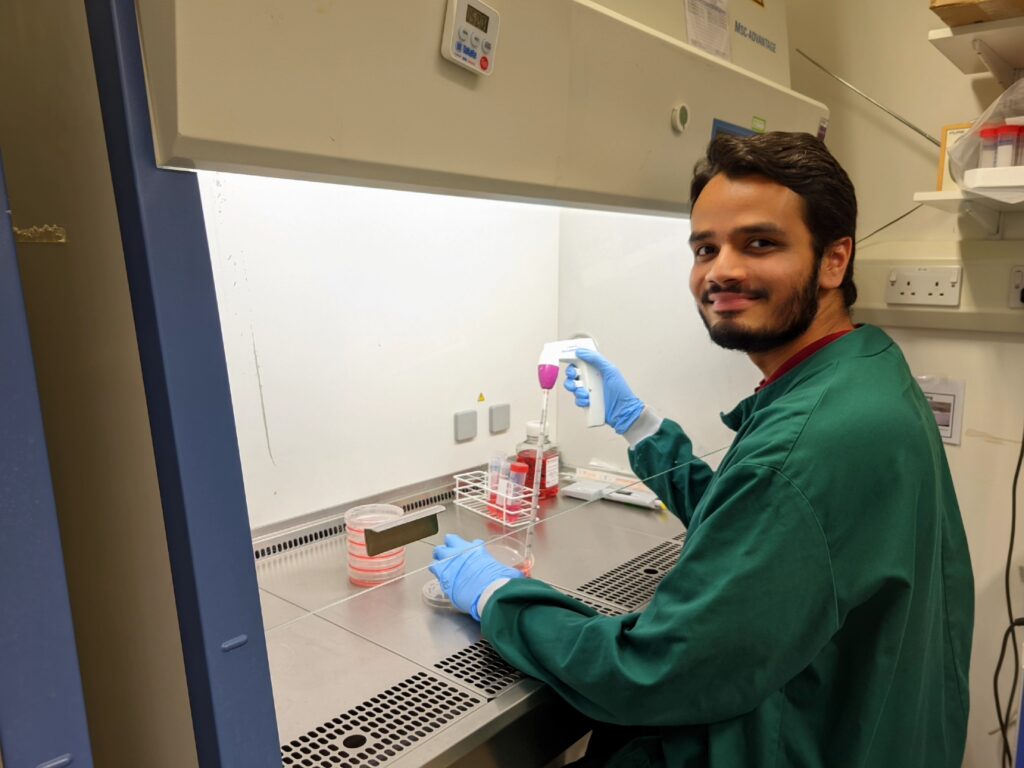Kedar Bhosale
Hi! I’m Kedar, a PhD student at The University of Manchester and part of the ChromRare project, where I focus on understanding the biology behind Kabuki Syndrome and related rare developmental disorders.
This past year has been a journey of both growth and discovery. My research explores how early brain development is affected in these conditions by studying patient-derived neurons in the lab. It’s been fascinating to observe these cells change over time, and even more fascinating to uncover how those changes differ in Kabuki Syndrome compared to normal development. The aim is to better understand what’s happening at the molecular level so that one day, this knowledge might guide new therapeutic approaches.
Working on a rare disease comes with its own set of challenges, from limited existing knowledge to the complexity of piecing together subtle biological clues. But that’s also what makes it exciting—every result, even a small one, feels meaningful. There have been days where progress felt slow, and times I doubted if I was heading in the right direction. But those moments were balanced by breakthroughs and the incredible support from mentors and peers who remind me of the bigger picture.
Being part of the ChromRare network has been a highlight of my PhD so far. Collaborating with other researchers across Europe, each bringing their own perspective and expertise, has made me appreciate the power of working together across disciplines and borders. It’s not just about the science—we’re building a community driven by shared curiosity and a common goal.
Looking ahead, I’m excited to keep pushing forward—one experiment, one idea, and one unexpected insight at a time.
#PhDLife #RareDiseases #iPSC #Epigenetics #Neuroscience #Chromatin #ResearchLife #KabukiSyndrome #ScienceTwitter #CellBiology


